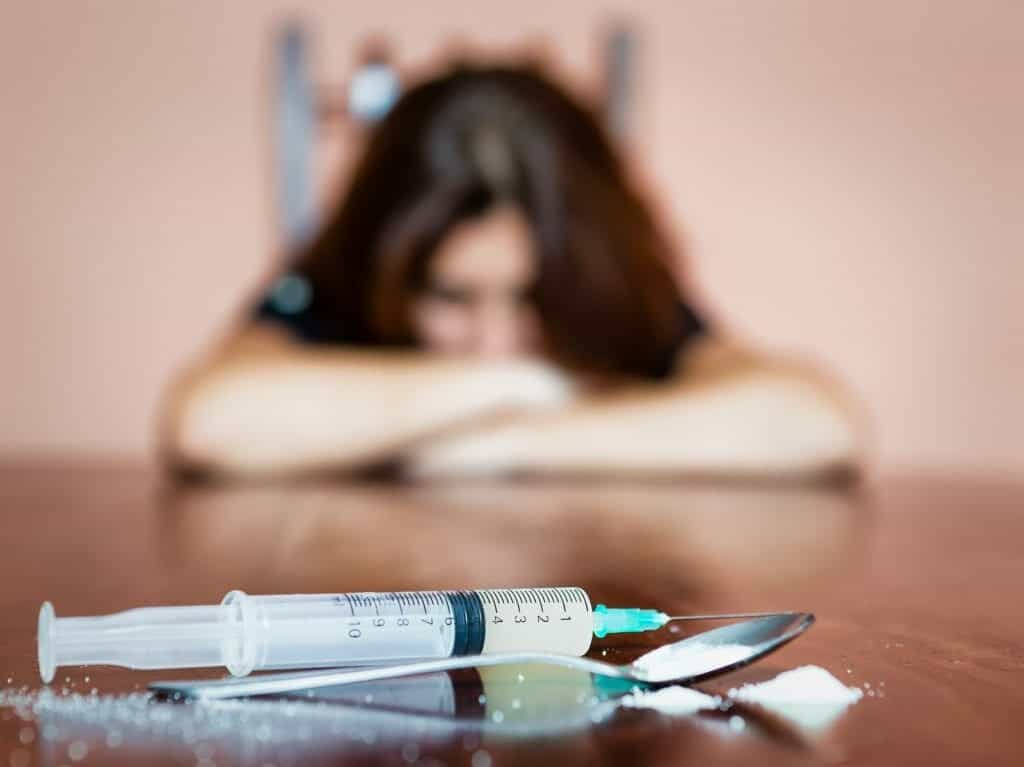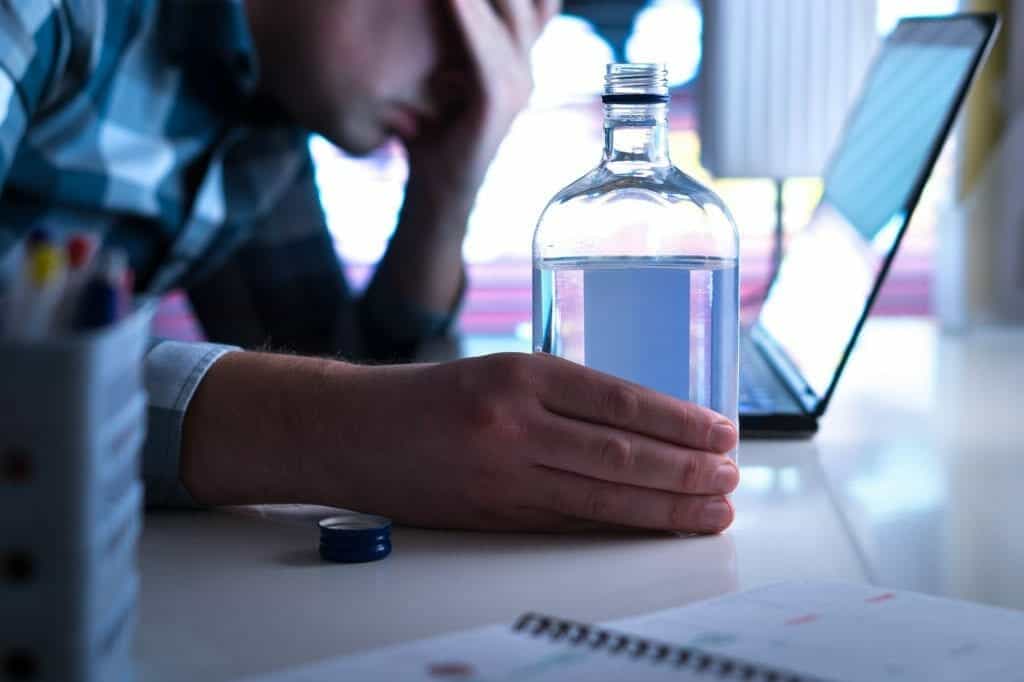Cocaine addiction can take hold from your first experience with the drug. Unlike other drugs that are physically addictive, such as alcohol and heroin, cocaine is psychologically addictive. It’s second only to methamphetamine in regards to the strength of dependency. With the highs lasting just 15-30 minutes, you’re more likely to binge with it. The more and faster you use it, the stronger that dependency becomes.
When those feelings of euphoria fade, you might find yourself irritated, uncomfortable, or depressed. You may end up using more of the drug to avoid these unpleasant feelings because you think this is how life without cocaine must feel all the time. Thankfully, that’s not the case. You’re just experiencing the early stages of detoxification—that is your body’s way of adjusting to the absence of cocaine in your system. Given enough time and proper support, these feelings can subside, and you can have a healthier, happier life.
What Does Cocaine Detox Feel Like?
When your body begins adjusting to a lack of cocaine, you may experience several side effects. Depending on various factors, including the length and severity of your addiction, mood disorders, and personal background, you may have a completely different experience from someone else in recovery.
Because cocaine addiction is a mental issue instead of a physical one, you won’t have some of the more physical reactions common to alcohol or heroin detox like nausea, vomiting, or diarrhea. However, it can take longer to shake these mentally motivated symptoms:
- Agitation and restlessness
- Depressed mood
- Lethargy or fatigue
- General feelings of discomfort
- Vivid, unpleasant dreams
- Intense cravings for cocaine
These symptoms are not life-threatening, but if you remain unassisted during this trying time, your chances for relapse or overdose are dramatically higher than those of someone in a treatment program.
How Long Does Cocaine Detox Last?
It’s important to seek guidance from a medical doctor to determine the severity of your addiction. While no two addictions are the same, a general timeline for a less severe cocaine detox is 1-3 weeks.
Your first few hours may have you feeling irritable or anxious with an increased appetite. However, your desire for more cocaine might actually decrease at this point. In the coming days and weeks, intense cravings for the drug may arise. You may find yourself struggling to sleep despite feeling tired. Concentration may prove difficult during this time. 2-3 weeks from your last usage may find these feelings subsiding as you return to a healthier frame of mind. The occasional craving can still arise as well as some anxiety.
Find Cocaine Detox Near Palmdale California at Cycles of Change
In less severe cocaine addiction cases, sub-acute detox at a rehab center like Cycles of Change could be exactly what you need. At our facility in Palmdale, California, we are licensed by the state to provide sub-acute detoxification—meaning treatment that does not require hospitalization or 24-hour medical care.
Our staff of licensed clinical psychologists, family therapists, medical personnel, and other industry professionals are fully invested in making your recovery a success. We will develop a personalized cocaine addiction treatment plan to provide you with the tools for continued success. Once you’ve completed rehab, we will continue to assist you on your journey by providing support groups, regular fellowship meetings, and additional wellness resources to help you maintain your sober lifestyle. Take that vital first step towards recovery from cocaine addiction, and contact us now.
Cocaine is a psychologically addictive drug. In fact, aside from methamphetamine, cocaine is considered to create the greatest psychological dependence of any drug.
The high you get from consuming cocaine only lasts about 15-30 minutes. That’s why so many people take it in binges. And the more you use cocaine, the stronger and faster the addiction becomes.
It’s important to remember that even if you are addicted to cocaine, there’s still hope. Keep the following 4 things in mind as you begin down your path to recovery.
4 Tips for Lasting Recovery
- Get the help you need. Although it’s possible for some people to overcome their cocaine addiction alone, it’s important to get help if you need it. Cocaine withdrawal might not affect you physically, but it can affect you psychologically (depression, agitation, etc.). At Cycles of Change, we can help you work through these feelings while providing you with the support you need.
- Define what success means to you. Just like every other type of recovery, you’re bound to feel discouraged at some points throughout your journey. Start the process by writing down your goals, whatever they are. These will help keep you motivated and stay focused!
- Trust is key. Developing a level of trust with those around you is key in your recovery. Whether you are working one-on-one with one of our trained counselors, or are taking part in group or family therapy sessions, a mutual level of trust, understand and respect will go a long way. Letting others in helps them get to know the real you, and helps you get to the root of your addiction.
- Remember: recovery takes time. It took some time for you to become dependent on cocaine. It’s going to take just as long (if not longer) for you to recover. Allow your mind and your body to take the time they need to heal. There is no such thing as a shortcut when it comes to cocaine recovery.
Learn more about cocaine addiction treatment and Cycles of Change.
Detoxing from Cocaine
As referenced above, there are usually no physical symptoms associated with cocaine withdrawal. Symptoms are usually psychological and include*:
- Fatigue
- Increased appetite
- Depressed mood
- Agitation
- Restless behavior
- Vivid and unpleasant dreams
Meet Chris
“Cycles of Change recovery services gave me a new lease on life. Before Cycles I was just an empty person who found comfort through addiction. My addiction was the one thing that I felt I could count on and it ultimately became my best friend and worse enemy. Cycles changed all of that. With the help of Joe and the people at cycles of change, not only did I find myself again but I managed to do so while gaining lifelong friends in the process.”
Hear more from our alumni!
Cocaine Addiction Recovery in California
Addiction is a powerful disease. And the only way to overcome your addiction is by getting the help you need. Your health and well-being is too important to wait another minute. Is today the day you regain control of your life? It only takes one phone call to begin the process of recovery: (661) 630-4176.
Referenced in this Article
*https://medlineplus.gov/ency/article/000947.htm
People tend to consider prescription painkillers an inherently “safe” drug, because when used properly, they’re legal. But even when used as directed, painkillers can still negatively affect your body and lead to addiction.
So why is painkiller abuse becoming increasingly common? Painkillers are a form of opioids. And opioids are highly addictive, meaning the risk of abuse is high. That’s why painkillers are typically only prescribed when other treatments and pain medications don’t work.
Painkillers: Signs of Addiction
Since there is a “right way” to take prescription painkillers, the line between proper use and abuse can be a little harder to draw. Here are 3 questions to ask yourself when determining if you might be addicted.
- Am I taking my medication as prescribed? Doing things like skipping doses so you can take more later and intensify effects is a classic sign of abuse.
- Am I noticing changes in my personality? Not feeling like yourself? It’s common for those who abuse prescription painkillers to have a significant and noticeable change in behavior.
- Am I getting pills from anyone other than my doctor? If you’re turning to anyone other than your doctor to try and obtain pills (friends, the street, etc.), that’s another classic sign of abuse and addiction.
Side Effects of Prescription Painkiller Abuse
How painkiller use can affect your physical health (even when used correctly):
- Compromised Immune System. Immediately upon taking painkillers, your body’s ability to fight off infection weakens. With no proven way to boost immune function, the best way to manage this side effect is to stop taking painkillers immediately.
- The Stomach and Intestines. Painkillers are well-known for causing severe constipation. This can set in only a day or two after use begins and can cause abdominal distention and bloating, as well as more serious side effects such as hemorrhoids and bowel obstruction.
- Increased Pain. As crazy as it may seem, painkillers can actually intensify pain in some people. People who experience this side effect are either transitioned to a different drug or weaned off painkillers altogether.
- Hormone Levels. Use of painkillers often causes low levels of testosterone or estrogen (the male and female sex hormones), which may result in erectile dysfunction, reduced libido, fatigue, hot flashes, menstrual irregularities, weight gain and depression. And hormone imbalance can lead to more serious complications, such as infertility and osteoporosis.
Detoxing from Painkillers
Because of the strength of prescription painkillers, an individual can become physically dependent without actually being addicted. This means that even if someone is taking their medications as prescribed, it’s possible that they will suffer the same physical withdrawal symptoms as someone who is addicted. Withdrawal symptoms related to painkiller addiction include:
- Anxiety
- Muscle aches
- Increased heart rate
- Nausea
- Insomnia
Above all it’s important to keep in mind that if you’re experiencing these withdrawal symptoms and showing some of the classic signs of abuse outlined above, you might be suffering from addiction and need some help in controlling your use.
Thinking of trying to stop taking painkillers on your own? Read this.
Painkiller Addiction Treatment at Cycles of Change
If you think you might have a problem with prescription painkillers, contact Cycles of Change Recovery Services today. Our addiction recovery center in California is designed to help you gain the knowledge, courage, and determination you need to maintain a drug-free lifestyle so you can flourish as a productive and functioning member of your family and society. From day one each step, each treatment program will be created around you and your individual needs to ensure you reach your goal of recovery. Facing your addiction alone can be overwhelming. We’re here to help. Fill out this form or call us today at 9494847451
Detoxing is the process of your body dealing with the lack of a substance like heroin. This can be a difficult hurdle to clear even when you’ve prepared for it due to the many ways heroin impacts your mind and body. It boosts your dopamine levels sky high. It takes the place of things you previously enjoyed. It’s only natural to have a strong mental and physical reaction while your body is adjusting to its absence.
Heroin addiction is a powerful, complex disease, but it is treatable. Withdrawal symptoms are an unpleasant part of the process, but they are necessary as your body learns to regulate itself normally again. Most importantly, you don’t have to go through this alone.
Your Heroin Withdrawal Timeline
Within 6-12 hours of your last dose, you may begin experiencing early withdrawal symptoms. They generally peak in severity for a couple of days before subsiding over the course of the next week or two. However, this can vary greatly from person to person. Factors that could impact your timeline (as well as the severity of the symptoms) are:
- Age
- Body type
- Physical health
- Length of addiction
- Amount of heroin used
- Other drugs used
Can You Die From Heroin Withdrawal?
Because heroin often leaves the user feeling euphoric and completely relaxed, there tends to be a lot of anxiety when thinking about life without the drug. Some users may even worry that giving it up could be fatal. While detoxing from heroin isn’t usually life-threatening on its own, some of the withdrawal symptoms can have potentially fatal complications. You may experience a variety of flu-like symptoms that range in severity. Some of the possible symptoms include:
- Chills
- Sweating
- Fatigue
- Nausea and vomiting
- Diarrhea
- Muscle spasms, cramps and aches
You might also experience:
- Intense cravings for the drug
- Rapid or impaired breathing
- Insomnia
- Depression
- Anxiety
- Hypertension or high blood pressure
Some of these symptoms can lead to serious complications—even death. The failure rate for those who try to detox on their own is extraordinarily high. For these reasons, it is highly recommended that you seek the help of a detox center staffed by medical and mental health professionals. They will be able to monitor your progress and adjust treatment as needed to ensure the smoothest process possible.
This might sound a bit frightening, but it’s important to remember that detoxing and withdrawal symptoms are only temporary. You are freeing yourself from an addiction that can lead to liver disease, collapsed veins, heart and lung problems, brain damage or death. On the road to recovery, you can regain joy and fulfillment from the things that brought you those feelings before heroin addiction took control of your life.
For Help with Heroin Withdrawal Near Palmdale, California, Call Cycles of Change
Most importantly, this is a journey you don’t have to take alone. The Cycles of Change sub-acute detox center in Palmdale is staffed with an experienced, compassionate team that is dedicated to your success. They will assess your needs and develop a comprehensive, customized treatment plan to ensure a safe experience with as little discomfort as possible. After your detox is complete, our specialized heroin treatment programs can help you further along your recovery journey. If you’re ready to take this vital step towards recovery, contact us now.
Let’s assume that you’re not physically addicted to alcohol and you don’t have any withdrawal symptoms when you don’t drink. Let’s also assume that your drinking is starting to cause some issues in your life. Maybe you’re spending too much money going out with friends. Or maybe you’ve been using alcohol to deal with daily stress and anxiety. But do you really have a problem?
Signs of Problem Drinking
It always helps when you know what to look for. A common problem drinking definition includes these warning signs:
- Regularly drinking alone
- Feeling guilty after drinking
- Feeling angry or violent when drinking
- An inability to stop drinking once you’ve started
- Preferring drinking friends over non-drinking friends
- Drinking to alleviate anxiety or stress
- Financial or employment difficulties brought on by alcohol use
blackouts
- Taking risks with your life or the lives of others
Problem Drinker vs. Alcoholic
Despite the fact that there are some serious health risks associated with each classification of drinkers (binge drinker, heavy drinker, problem drinker) none are more serious than those associated with alcoholism.
The best way to determine if you’re addicted to alcohol is to be open and honest with yourself. This is key. You may have had family or friends express their concerns, but your best bet is to look for the warning signs and truthfully assess whether or not they apply to you. Here are a few:
- Drinking more alcohol than you wanted/planned to
- Neglecting your responsibilities at home, work, or school because of your drinking
- Continuing to drink even though it’s causing problems in relationships and your health
- Trying to hide drinking from others and feeling embarrassed about how much you consume
- Building up a tolerance (having to continuously drink more to achieve the same effect)
- Being unable to quit drinking
Another Critical Warning Sign: Withdrawal
Drinking heavily on a regular basis allows your body to get used to the alcohol and when it’s taken away, withdrawal symptoms begin to surface.
These symptoms include anxiety, trembling, sweating, nausea, insomnia, depression, irritability, fatigue, loss of appetite, headache, hallucinations, confusion and even seizures. If you drink to relieve or avoid these symptoms, this is a definite sign of alcoholism.
Detoxing from Alcohol
Alcohol withdrawal (which usually lasts between 5-7 days) can be a life-threatening condition that can cause serious problems. It’s recommended that individuals addicted to alcohol get the help of a qualified treatment center. By engaging the help of professionals, those seeking assistance can gain access to a number of prescription medications that can help minimize the severity of the following side effects associated with detoxing from alcohol.
Alcohol withdrawal symptoms include:
- Headache
- Trembling
- Cravings
- Sweating
- Nausea/vomiting
- Problems sleeping
Some individuals (about 1 in 20 who experience withdrawal) will experience delirium tremens (DTs), a more severe reaction to giving up alcohol. Symptoms include:
- Agitation
- Confusion
- Delirium (seeing/hearing things that aren’t really there)
- Disorientation
- Extreme anxiety
- Convulsions
- Dehydration
Learn more about detoxing from alcohol and other drugs.
Meet Chris
“Cycles of Change recovery services gave me a new lease on life. Before Cycles I was just an empty person who found comfort through addiction. My addiction was the one thing that I felt I could count on and it ultimately became my best friend and worse enemy. Cycles changed all of that. With the help of Joe and the people at cycles of change, not only did I find myself again but I managed to do so while gaining lifelong friends in the process.”
Hear from more of our alumni!
Don’t Wait to Get the Help You Need
If you think you might have a drinking problem, don’t wait to get the help you need. We offer comprehensive addiction rehab services that focuses on your physical and psychological needs before you take your first step toward sobriety. There are a variety of alcohol treatment programs available and our counselors will work with you to help you choose the best program to support your goal of sober living. Facing your addiction alone can be overwhelming. We’re here to help. Fill out our form or call us today at (661) 630-4176.






